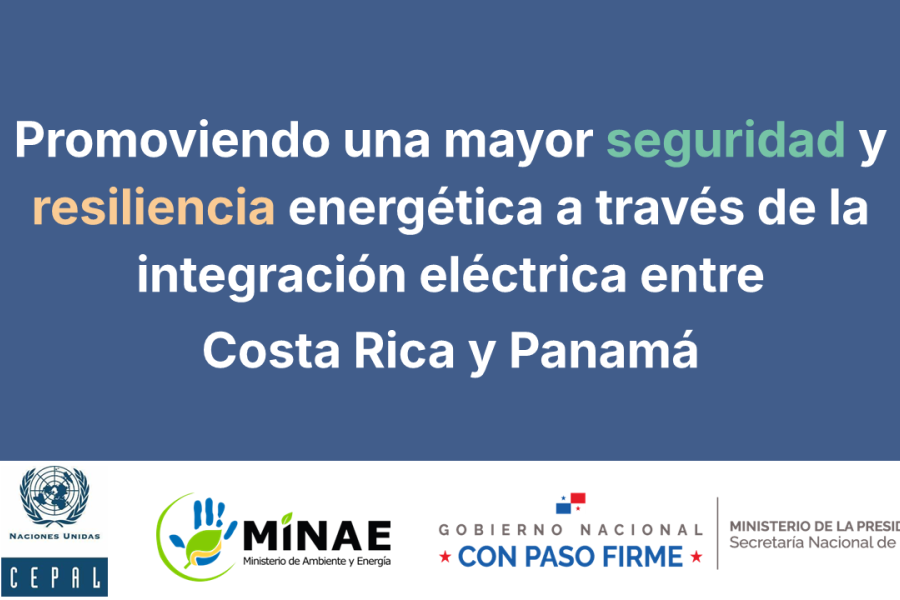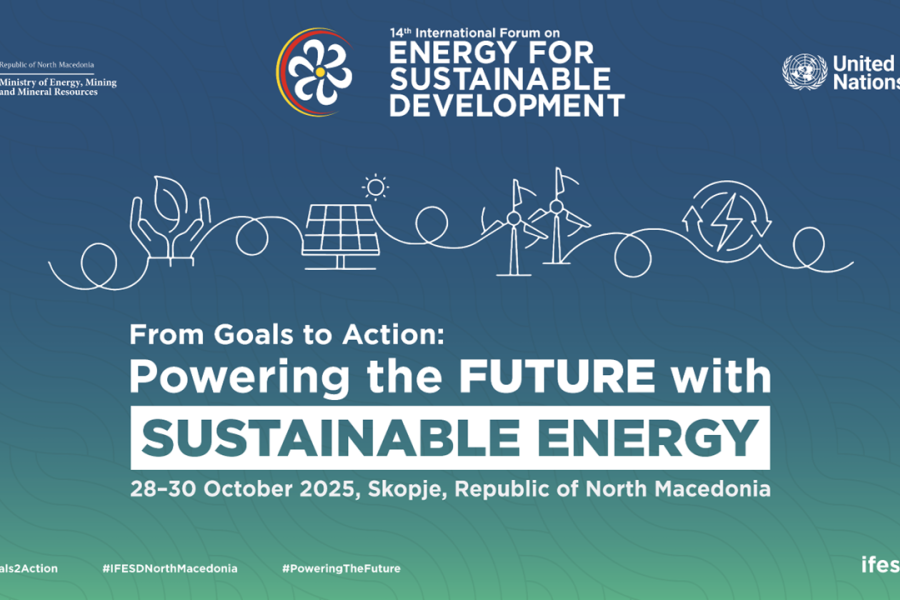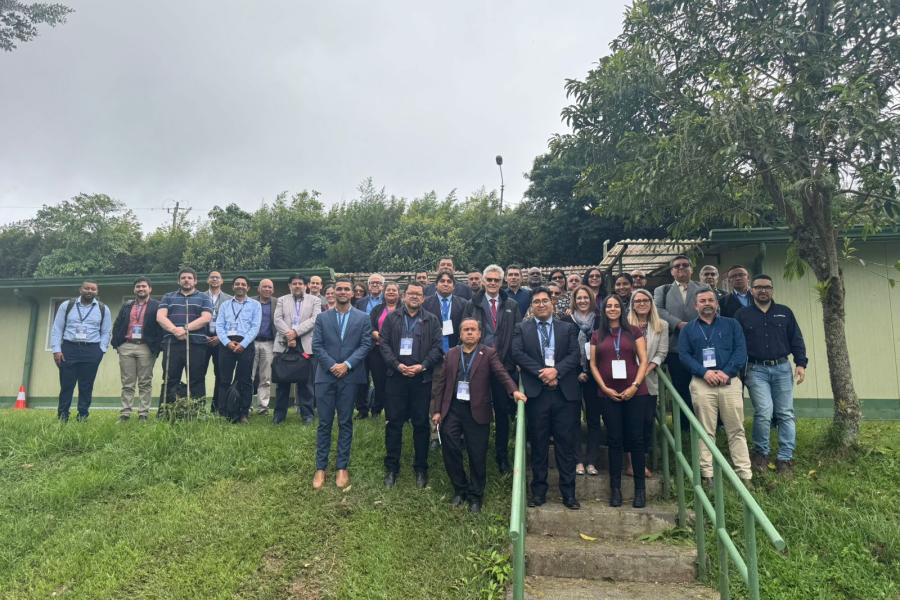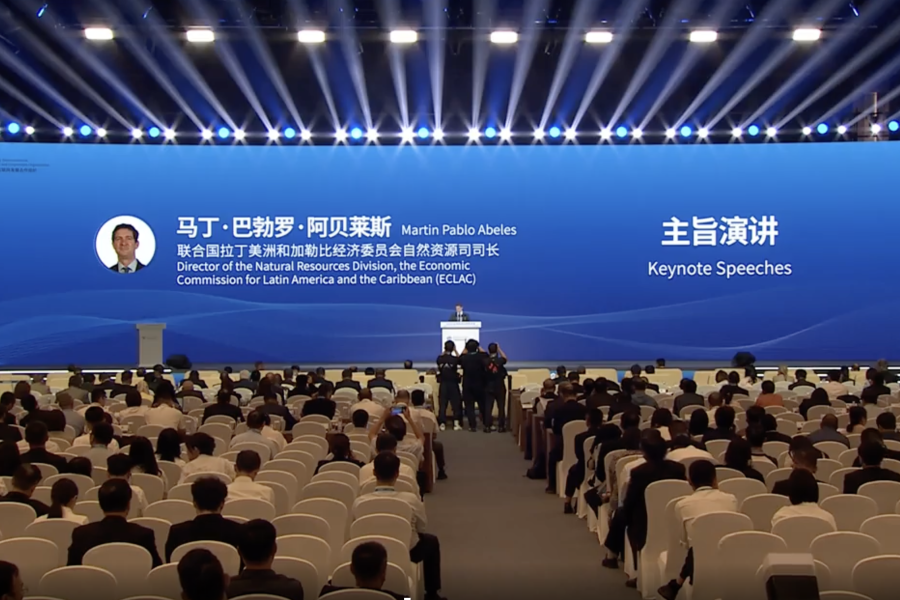Energy
El área de energía enfrenta el desafío de apoyar a los países de la región en el diseño y propuestas de políticas que permitan configurar una matriz energética con componentes de renovabilidad para el logro de una transición energética justa y sostenible. En los últimos años la CEPAL ha creado, desarrollado y apoyado una iniciativa denominada Observatorio Regional sobre Energías Sostenibles (ROSE) que busca difundir instrumentos para el sector energía: el Programa Base de Indicadores de Eficiencia Energética (BIEE) y Foro Regional de Planificadores Energéticos (FOREPLEM), entre otras iniciativas, todo ello para reunir esfuerzos orientados al cumplimiento de las metas de la Agenda 2030, y con especial atención en el ODS7.
Activities
IX Reunión Plenaria del Foro Regional de Planificadores de Energía (FOREPLEN)
La ciudad de Montevideo será la sede la IX Reunión Plenaria del Foro Regional de Planificadores Energéticos (FOREPLEN) que se realizará del 17 al 19 de marzo de 2026.

Pobreza Energética en Colombia: una propuesta de medición multidimensional para las políticas de transición energética
Este Seminario–Taller reúne a instituciones públicas, academia y sociedad civil para consolidar la propuesta de medición multidimensional del país, fortalecer capacidades con enfoque territorial y de género, y socializar resultados mediante un seminario multiactor para avanzar en una hoja de ruta y promover colaboración interinstitucional para una transición energética justa.

Taller Binacional "Promoviendo una mayor seguridad y resiliencia energética a través de la integración eléctrica entre Costa Rica y Panamá"
La Comisión Económica para América Latina y el Caribe (CEPAL), en conjunto con el Ministerio de Ambiente y Energía (MINAE) de Costa Rica y la Secretaria Nacional de Energía (SNE) de Panamá organizan este Taller para el fortalecimiento de capacidades institucionales mediante un diálogo técnico y político para habilitar una mayor capacidad de intercambios energéticos entre Panamá y Costa Rica

14th International Forum on Energy for Sustainable Development
El 14.º Foro Internacional sobre Energía para el Desarrollo Sostenible (14-IFESD por sus siglás del inglés International Forum on Energy for Sustainable Development) se celebrará del 28 al 30 de octubre de 2025 en Skopie, República de Macedonia del Norte y está organizado por el Ministerio de Energía, Minería y Recursos Minerales de Macedonia del Norte, la Oficina del PNUD en Macedonia del Norte y las cinco Comisiones Regionales de las Naciones Unidas: CEPE/UNESCO, CESPAP, CEPA/UNESCO, CESPAO y la CEPAL.
News

CEPAL junto a los gobiernos de Costa Rica y Panamá realizan taller binacional para fortalecer la seguridad y resiliencia energética mediante la integración eléctrica
El encuentro reunió a más de 40 representantes de instituciones públicas, operadores de sistemas eléctricos, empresas del sector, organismos reguladores y entidades regionales vinculadas al Mercado Eléctrico Regional (MER), con el objetivo de fortalecer las capacidades técnicas y de gobernanza para avanzar hacia una mayor integración energética binacional y regional.

ECLAC promotes regional energy cooperation during the International Forum on Energy for Sustainable Development (IFESD 14)
The Economic Commission for Latin America and the Caribbean (ECLAC) participated in the 14th edition of the International Forum on Energy for Sustainable Development (IFESD-14), which brought together more than 500 participants from 70 countries under the theme “From Goals to Action: Powering the Future with Sustainable Energy.”

CEPAL participó en la X Semana de la Energía de OLADE
La Comisión Económica para América Latina y el Caribe (CEPAL) participó activamente en la X Semana de la Energía y en la LV Reunión de Ministros de Energía de OLADE, celebrada en Santiago de Chile, reafirmando su rol como socio clave en la articulación de los esfuerzos regionales para acelerar una transición energética justa, inclusiva y sostenible.

La CEPAL participó en la Conferencia Global de Interconexión Energética 2025 organizada por GEIDCO, destacando los avances de América Latina y el Caribe en la transición energética
La Comisión Económica para América Latina y el Caribe (CEPAL) participó activamente en la Conferencia Global de Interconexión Energética 2025 (Global Energy Interconnection Conference – GEI 2025), organizada por la Global Energy Interconnection Development and Cooperation Organization (GEIDCO).
